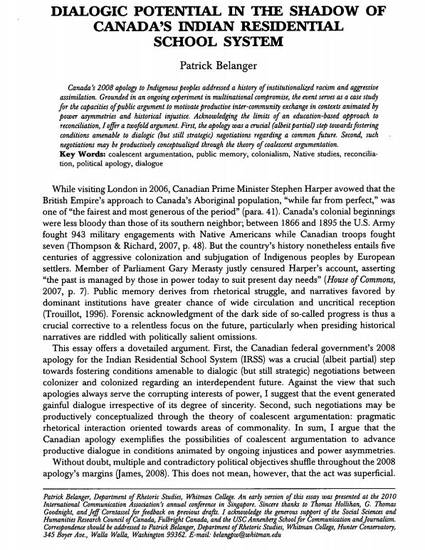
Article
Dialogic Potential in the Shadow of Canada's Indian Residential School System
Argumentation and Advocacy
(2012)
Abstract
Canada's 2008 apology to Indigenous peoples addressed a history of institutionalized racism and aggressive assimilation. Grounded in an ongoing experiment in multinational compromise, the event serves as a case study for the capacities of public argument to motivate productive inter-community exchange in contexts animated by power asymmetries and historical injustice. Acknowledging the limits of an education-based approach to reconciliation, I offer a twofold argument. First, the apology was a crucial (albeit partial) step towards fostering conditions amenable to dialogic (but still strategic) negotiations regarding a common future. Second, such negotiations may be productively conceptualized through the theory of coalescent argumentation.
Keywords
- coalescent argumentation,
- public memory,
- colonialism. Native studies,
- reconciliation,
- political apology,
- dialogue
Publication Date
2012
DOI
10.1080/00028533.2012.11821778
Citation Information
Belanger, P. (2012). DIALOGIC POTENTIAL IN THE SHADOW OF CANADA'S INDIAN RESIDENTIAL SCHOOL SYSTEM. Argumentation & Advocacy, 49(1), 16-38.
